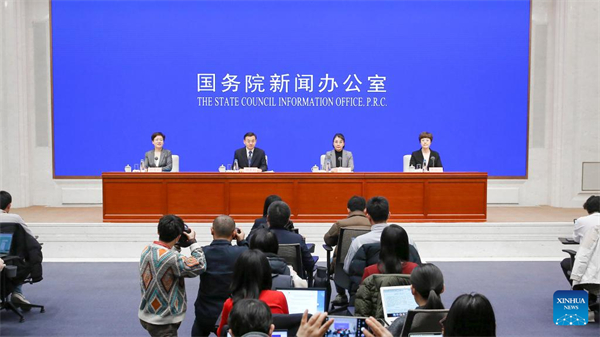China tightens oversight on administrative inspections of enterprises

A press conference about a document issued by the General Office of the State Council on strictly regulating administrative inspections on companies is held by the State Council Information Office in Beijing, capital of China, Jan. 7, 2025. (Photo by Liu Jian/Xinhua)
BEIJING -- The Chinese government has issued a comprehensive directive aimed at addressing the misuse of administrative inspections of enterprises, a senior judicial official said Tuesday.
The new policy document, the first systematic one to regulate such inspections, aims to strike a balance between effective supervision and minimal interference in law-abiding business operations, said Vice Minister of Justice Hu Weilie at a press conference.
The directive targets longstanding problems such as unclear inspection authority, excessive frequency and arbitrary implementation, Hu said.
The document stipulates that only qualified entities may conduct inspections and ask for a review of existing inspection items to eliminate unnecessary or redundant checks.
It also includes provisions to minimize the number and frequency of on-site inspections and replace some of them with written reviews, data sharing and application of information technology.
Each administrative agency is instructed to adopt and publish the maximum annual inspection frequency of one enterprise by mid-2025.
"These hard quotas aim to substantially lower the burden on enterprises," said Fei Xianghong, a senior ministry official, at the same press conference.
The directive establishes clear rules to prevent abuse of power, including bans on profit-driven inspections, interference in regular business operations, arbitrary seizures and freezing of assets, and unjustified orders to halt production.
Additionally, the document outlines procedural safeguards for conducting inspections, ensuring transparency and fairness throughout the process.
"We are determined to show businesses the government's commitment to regulating administrative inspections and enhancing their confidence in the future," Hu said.
He also emphasized that inspections in areas critical to public safety, such as food, pharmaceuticals and workplace safety, will remain rigorous, especially in cases involving public complaints or reports.

Ministry of Justice of the
People's Republic of China
All rights reserved. Presented by China Daily.
京ICP备13016994号-2


